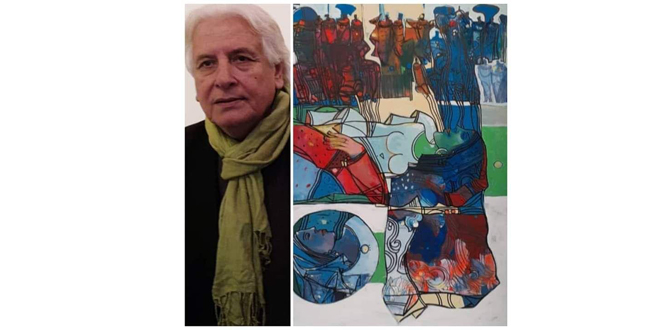For more than forty years, the experience of the artist Anwar Al-Rahbi, has been based on a special relationship with his paintings that depict different topics and express the artist’s ideas away from stereotypes.
Al-Rahbi finds that the variables contained in the painting can create spatial social emotions that have a visual charm. He says: “I like to show rituals in my work, as I work to show the aesthetic and dramatic action and invest the color space to reach the state of honesty that I want.”
The artist, the son of Deir Ezzor city, believes that his belonging to this environment and its people allowed him to simulate with it in a semantic way to convert the spatial item from the environment into a visual one, explaining that his interest in women comes from the fact that women are the icon through which he sees life and forms it in brutal colors of red, blue, and yellow with houses and symbols, so they are all Spatial items.
On the impact of the war on the Syrian plastic art,, Al-Rahbi says: “The Syrian artist during this time has dealt with the event through a number of visual, social and aesthetic systems. The galleries are full of works by artists who presented the years of war events in their artworks mimicking our heritage and cultural symbols in response to those who wanted to obliterate our civilization. He called on all artists abroad to adopt, through their art, the affairs of their Home, Syria.
On the future of the Syrian plastic art, Al-Rahbi said: “I am not pessimistic about the future, as I am in line with the plastic art’s product in its formal and informal presence. I respect artistic relations, the mechanism of creation and production, and I seek, with many others, that the plastic art movement to be a force for change in the creative process, in general.”
The artist Anwar Al-Rahbi was born in Deir Ezzor in 1957.
He occupied the position of the Secretary General of Fine Artists Union in Syria. He obtained many awards in Syria and abroad and has many collective and individual exhibitions inside and outside Syria. His works are acquired by the ministries of culture, foreign affairs and tourism, within special groups.
Amal Farhat

